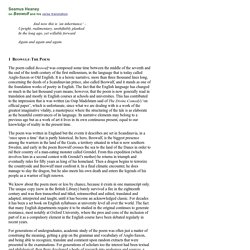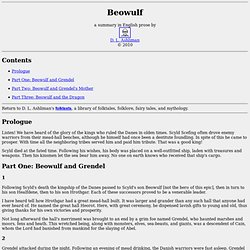

Reasons We Use Alliteration. Author's Craft - Literary Devices - Alliteration. Literary Devices Alliteration What is it?

Alliteration is a figure of speech in which the same sound appears at the beginning of two or more words. Alliterative words are consecutive or close to each other in the text. Why is it important? Alliteration focuses readers' attention on a particular section of text. How do I do it? Use repeated sounds at the beginning of words to focus attention or convey an idea or emotion. Example 1: "Peter Piper picked a peck of pickled peppers. More about alliteration. Alliteration. Figurative language and figures of speech are used to evoke emotion and to imply meanings in writing by means of making comparisons and allusions to familiar objects and ideas that can help a reader to relate to what the author is trying to say.

Alliteration is a figure of speech that is related to onomatopoeia in that it involves the sense of sound. For an author, representing sounds with words can be quite difficult to do effectively. Alliteration refers to a group of words that start with the same consonant sound. An example of alliteration is “Charlie carefully counted coins,” where the “C” sound is repeated throughout the phrase. Not only do alliterative words portray sounds and engage a person’s auditory senses, but they can also be used to emphasize groups or words and to provide moods and connotations to provide greater insight into an author’s words. 15 divine devices to drastically improve your writing. Want to inject some razzle and dazzle and a little anaphora into your writing?

If your writing seems dull and lifeless, maybe all it needs is a lovely little literary device cleverly placed to keep your reader interested and excited. What’s a literary device? Well, it’s not a new tech gadget or a cool app. A literary device is one of many specific techniques used to make your writing lively, easy to understand, and entertaining. A literary device can also help to hold your reader’s interest. Literary devices—also called rhetorical devices and literary techniques—have different purposes. You’ve heard of similes and metaphors, right? Seamus Heaney on BEOWULF. And now this is ‘an inheritance’ – Upright, rudimentary, unshiftably planked In the long ago, yet willable forward Again and again and again.

The poem called Beowulf was composed some time between the middle of the seventh and the end of the tenth century of the first millennium, in the language that is today called Anglo-Saxon or Old English. It is a heroic narrative, more than three thousand lines long, concerning the deeds of a Scandinavian prince, also called Beowulf, and it stands as one of the foundation works of poetry in English. The fact that the English language has changed so much in the last thousand years means, however, that the poem is now generally read in translation and mostly in English courses at schools and universities.
The poem was written in England but the events it describes are set in Scandinavia, in a ‘once upon a time’ that is partly historical. We know about the poem more or less by chance, because it exists in one manuscript only. Francis Barton Gummere. Beowulf's Funeral OE Text. Digitised Manuscripts. Unferth. The Monster. BEOWULF. Beowulf Legend - Grendel Attacks. Beowulf: A Summary in English Prose. A summary in English prose by D.

L. Ashliman © 2010 Contents Return to D. Prologue Listen! Scyld died at the fated time. Part One: Beowulf and Grendel Following Scyld's death the kingship of the Danes passed to Scyld's son Beowulf [not the hero of this epic], then in turn to his son Healfdene, then to his son Hrothgar. I have heard tell how Hrothgar had a great mead-hall built. Not long afterward the hall's merriment was brought to an end by a grim foe named Grendel, who haunted marshes and moors, fens and heath.
Grendel attacked during the night. These loathsome attacks continued for twelve winters. Many of the grief-stricken Danes, seeing no other source of help, returned to their old heathen faith. Tidings of Grendel's attacks reached the country of the Geats. Beowulf had a ship outfitted for the journey, then chose fifteen warriors to accompany him. Driven by the wind, the ship sped across the waves. Beowulf answered: "We are of the Geatish kin, Hygelac's hearth-companions. BeowulfTranslations.net: Translations by Burton Raffel (1963) BEOWULF Full Text.